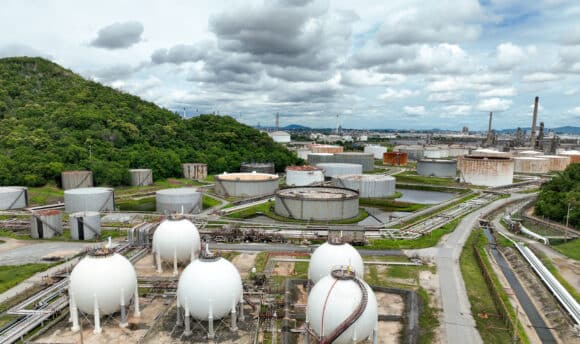This past week, Chubb, The Hartford, and Travelers released proxy statements urging shareholders to vote against the climate and human rights resolutions on the ballot at their annual general meetings in May. These insurers are facing a growing challenge from investor advocates to curb fossil fuel underwriting, reduce emissions, and respect Indigenous rights, and, in response, are doubling down on inadequate policies and greenwashing.
“Instead of putting time and energy into developing ambitious policies to address their contribution to the climate crisis as well as the climate risks and human rights risks posed by their underwriting practices, Chubb, The Hartford, and Travelers are fighting concerned shareholders who are bringing reasonable proposals to address these risks."
In their proxy statements for this year’s Annual General Meetings (AGMs), Chubb, The Hartford, and Travelers reject resolutions that call on them to stop underwriting new fossil fuel projects (The Hartford and Travelers), to disclose emissions reductions plans in line with limiting global warming to 1.5°C (Chubb and Travelers), and to issue a report on human rights and racial equity (Chubb and Travelers, respectively). They each claim that their existing climate policies are sufficient to tackle the climate crisis, but all three insurers, along with the entire U.S. sector, continue to underwrite the expansion of fossil fuels, which directly contradicts recommendations to limit global warming to 1.5°C from global entities including the International Energy Agency and the United Nations. They also lag significantly behind global peers with respect to their climate and human rights due diligence underwriting policies, exposing them to reputational and financial risks.
“We are very disappointed that Travelers continues to resist business strategies that would align the company with a 1.5°C global warming pathway. The company is pushing back against reasonable shareholder actions while continuing to obfuscate the risk that failure to stay on this pathway will present to shareholders and policyholders. The unanticipated losses in the fourth quarter of 2022 due to storm payouts are only likely to increase due to the inaction of management.”
Last month, Chubb became the first U.S. insurer to limit insuring some oil and gas extraction projects with new standards on methane emissions and conservation. However, Chubb’s commitments remain far from aligning the insurer with a 1.5ºC pathway, and it is able to keep insure many oil and gas expansion projects that pollute the climate, communities, and ecosystems. Today, Rainforest Action Network released an in-depth analysis of Chubb’s new policy, detailing how they fall short of 1.5ºC and are weaker than best practice oil and gas policies from global insurers. The analysis also outlines how Chubb’s new standards do not restrict support for many controversial fossil fuel expansion projects, such as the Willow Project in Alaska and the East African Crude Oil Pipeline (EACOP) in Uganda and Tanzania.
“Although Chubb’s new policies represent an important step forward among U.S. insurers, to truly live up to its word and bring about the transition to the low-carbon economy it purports to support, Chubb must immediately cease insuring all fossil fuel expansion projects, regardless of if they are located in conservation areas or if they have plans to reduce methane emissions associated with production. Investors will have the opportunity to hold Chubb accountable to its commitments this May by voting for shareholder resolutions urging the company to set emissions reductions targets and to issue a report on human rights evaluation in the underwriting process.”



